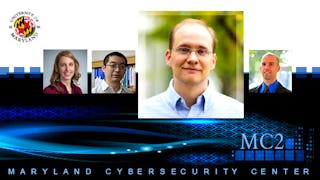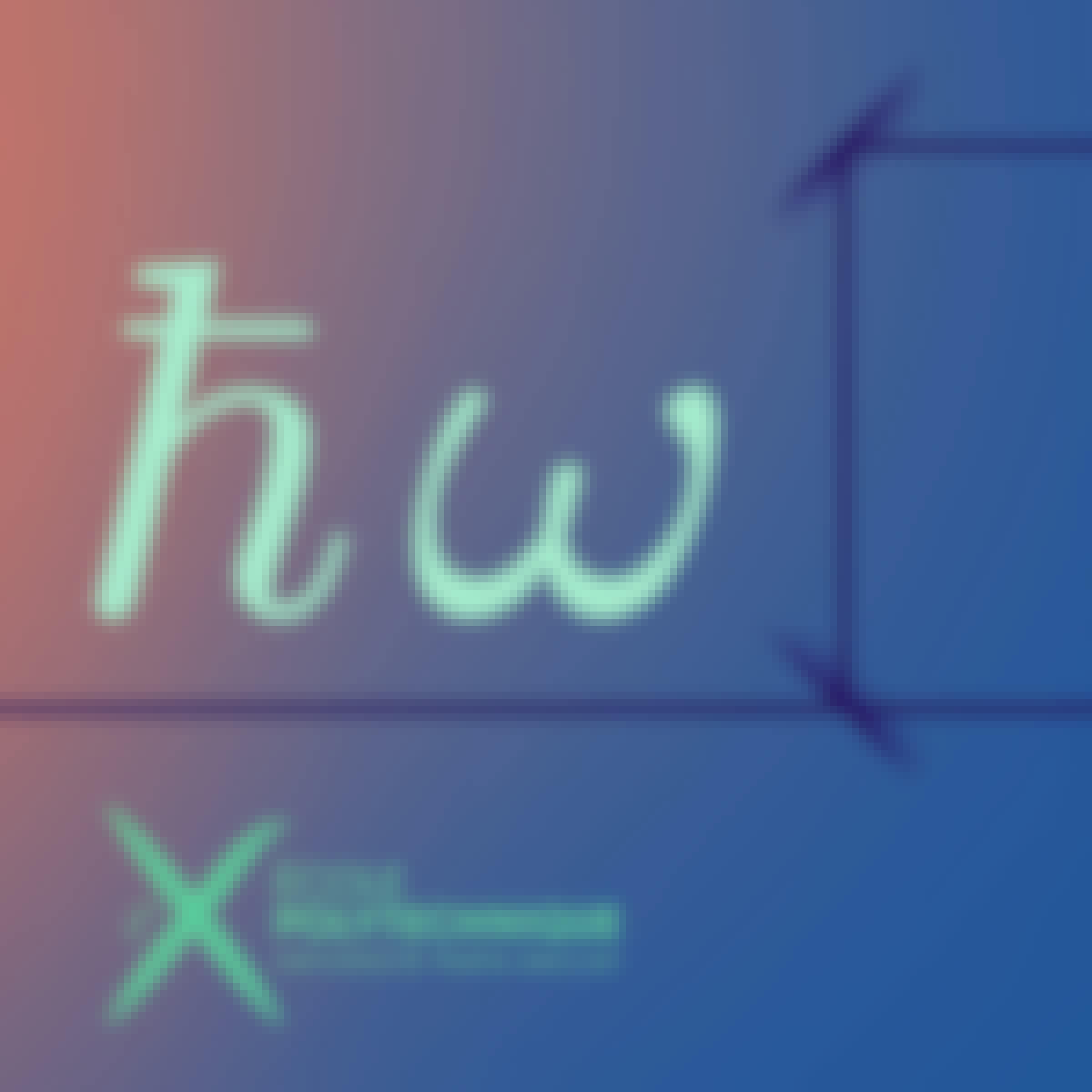Filter by
SubjectRequired
LanguageRequired
The language used throughout the course, in both instruction and assessments.
Learning ProductRequired
LevelRequired
DurationRequired
SkillsRequired
SubtitlesRequired
EducatorRequired
Explore the Quantum Cryptography Course Catalog
 Status: Free Trial
Status: Free TrialUniversity of Colorado System
Skills you'll gain: Cryptography, Arithmetic, Algorithms, Applied Mathematics, Probability, Computer Science
 Status: Preview
Status: PreviewFractal Analytics
Skills you'll gain: Cloud Computing, Information Technology, Cybersecurity, Machine Learning Algorithms, Critical Thinking, Simulations
 Status: NewStatus: Free Trial
Status: NewStatus: Free TrialSkills you'll gain: Cryptography, Encryption, Cloud Security, Cyber Security Assessment, Data Encryption Standard, Cloud Computing, Advanced Encryption Standard (AES), Data Security, Key Management, Public Key Infrastructure
 Status: Preview
Status: PreviewStanford University
Skills you'll gain: Cryptography, Data Encryption Standard, Encryption, Key Management, Advanced Encryption Standard (AES), Public Key Cryptography Standards (PKCS), Cybersecurity, Authentications, Data Integrity, Secure Coding, Algorithms

University of Maryland, College Park
Skills you'll gain: Cryptography, Encryption, Public Key Cryptography Standards (PKCS), Cybersecurity, Digital Communications, Authentications, Data Integrity, Algorithms, Computer Science

ISC2
Skills you'll gain: Cryptography, Key Management, Public Key Infrastructure, Encryption, Data Security, Public Key Cryptography Standards (PKCS), Cybersecurity, Authentications, Email Security, Data Integrity, IT Security Architecture, Virtual Private Networks (VPN), Algorithms
What brings you to Coursera today?
 Status: Free Trial
Status: Free TrialSkills you'll gain: Python Programming, Algorithms, Computer Programming, Theoretical Computer Science, Linear Algebra, Mathematics and Mathematical Modeling, Computer Science, Algebra, Object Oriented Programming (OOP), IBM Cloud, Scripting, Probability, Artificial Intelligence and Machine Learning (AI/ML), Data Processing, Mathematical Modeling, Data Structures, Data Manipulation, Probability & Statistics, Applied Mathematics, Software Installation
 Status: Free Trial
Status: Free TrialUniversity of California San Diego
Skills you'll gain: Cryptographic Protocols, Cryptography, Key Management, Encryption, Public Key Cryptography Standards (PKCS), Arithmetic, Algorithms, Theoretical Computer Science, Computational Thinking, Algebra, Python Programming
 Status: Free
Status: FreeGoogle Quantum AI
Skills you'll gain: Debugging, Hardware Architecture, Failure Analysis, Computer Programming Tools, Theoretical Computer Science, Mathematical Modeling, Computer Hardware, Simulations, Linear Algebra, Computer Science
 Status: Free Trial
Status: Free TrialUniversity of Colorado Boulder
Skills you'll gain: Public Key Cryptography Standards (PKCS), Cryptography, Data Structures, Algorithms, Encryption, Theoretical Computer Science, Computer Science, Computational Thinking, Data Storage Technologies, Linear Algebra, Python Programming, Arithmetic
 Status: Preview
Status: PreviewKorea Advanced Institute of Science and Technology(KAIST)
Skills you'll gain: Communication Systems, Emerging Technologies, Informatics, Cryptography, Linear Algebra, Computational Thinking, Information Technology, Physics, Mathematical Modeling
 Status: Preview
Status: PreviewÉcole Polytechnique
Skills you'll gain: Physics, Experimentation, Cryptography, Electrical Engineering, Mathematical Modeling, Laboratory Research, Applied Mathematics, Engineering, Scientific, and Technical Instruments, Emerging Technologies
Quantum Cryptography learners also search
In summary, here are 10 of our most popular quantum cryptography courses
- Mathematical Foundations for Cryptography: University of Colorado System
- Quantum Computing For Everyone - An Introduction : Fractal Analytics
- Certified Ethical Hacker (CEH): Unit 7: Pearson
- Cryptography I: Stanford University
- Cryptography: University of Maryland, College Park
- Cryptography : ISC2
- The Complete Quantum Computing Course for Beginners: Packt
- Number Theory and Cryptography: University of California San Diego
- Hands-on quantum error correction with Google Quantum AI: Google Quantum AI
- Advanced Data Structures, RSA and Quantum Algorithms: University of Colorado Boulder










